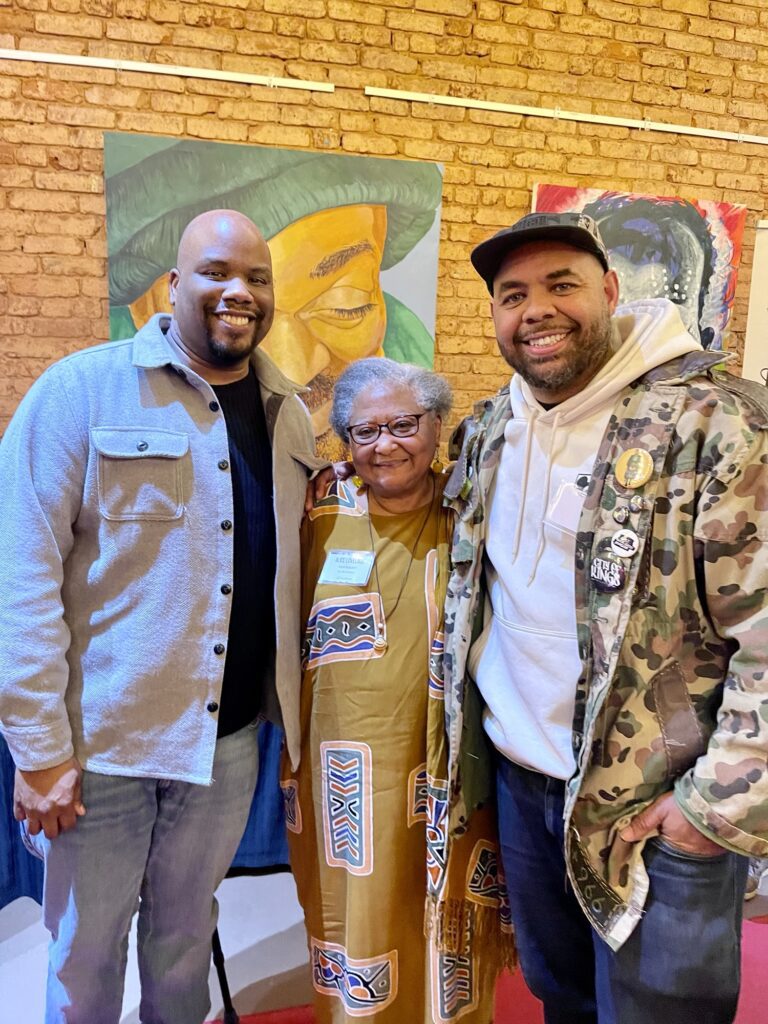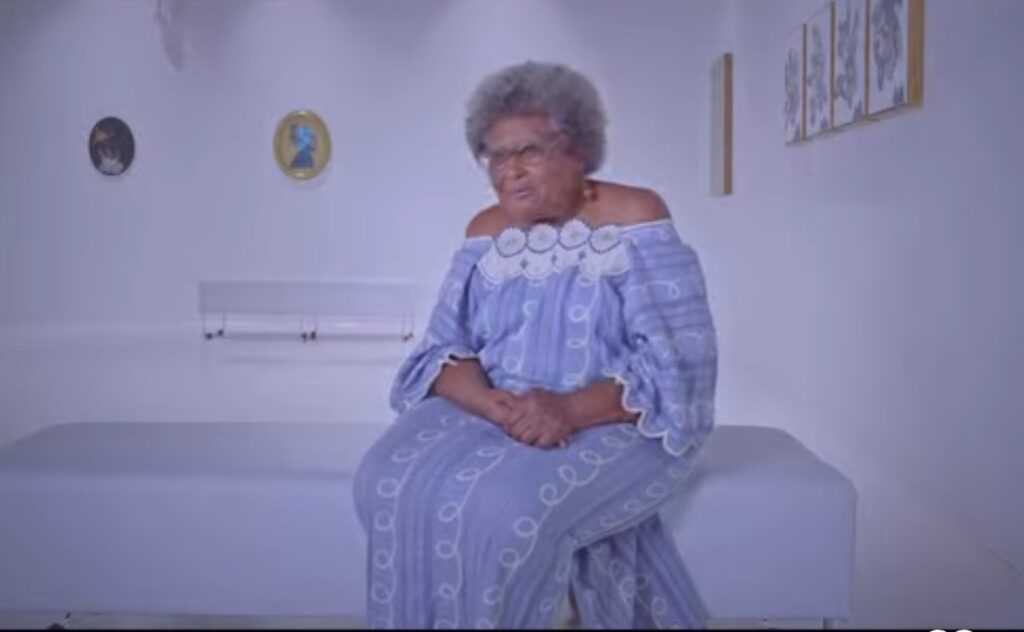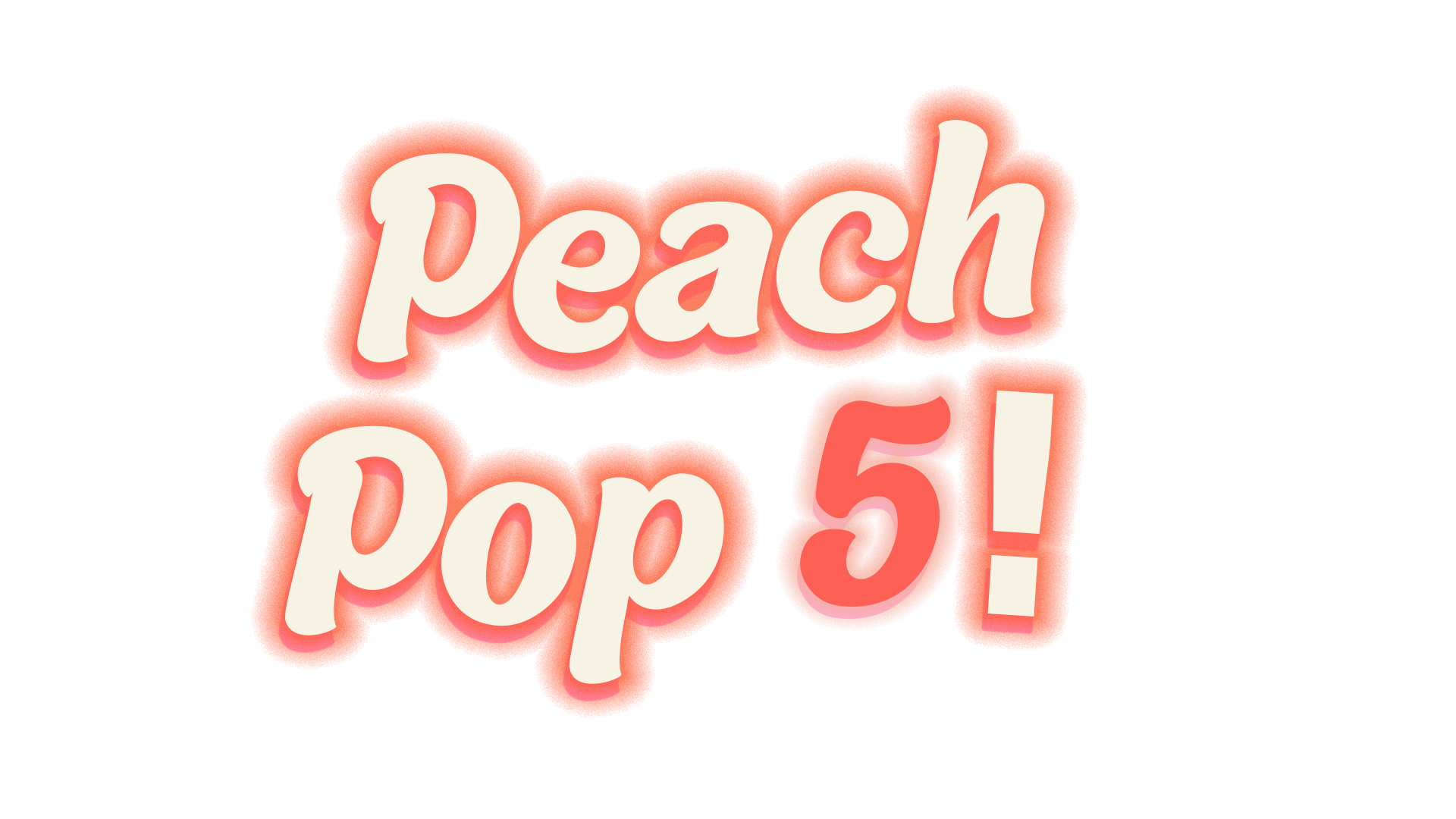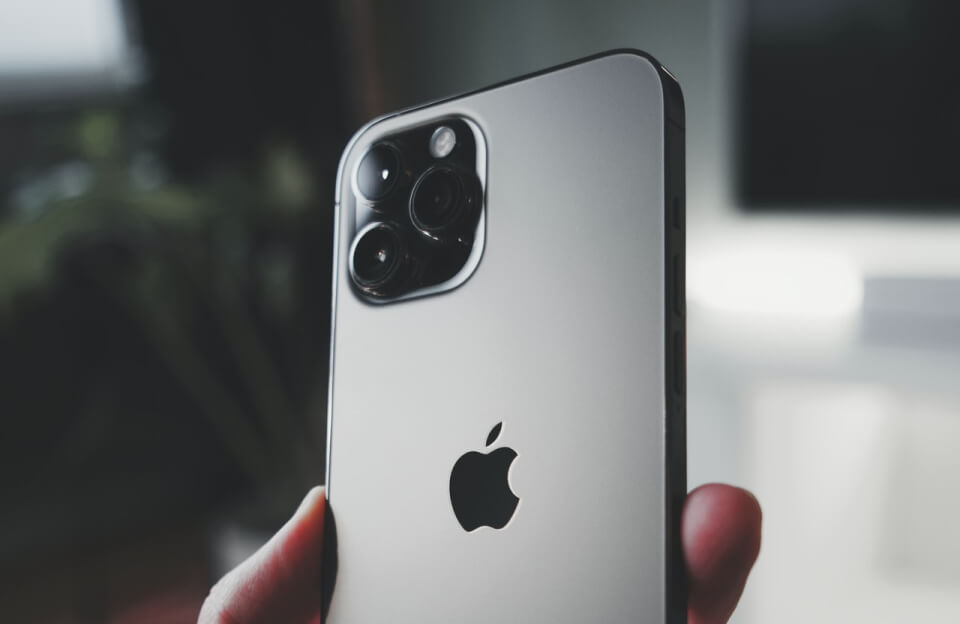At South Fulton Art’s Filmer 7 screening, the various creativity and talent displayed by the filmmakers remains inspiring.
Say Yes to Destiny, a film by multidisciplinary Atlanta-based artist and filmmaker Jonathan Banks, was a stand out. The documentary pays tribute to the incredible life and work of Alice Lovelace, an activist, poet, and cultural leader who has profoundly impacted Atlanta’s artistic and social justice communities.
For Banks, the decision to make Say Yes to Destiny was not just a creative choice—it was a calling.
“I saw Alice’s name on the list of potential subjects, and I just knew—I had to do it,” Banks said. “She has made so many powerful choices in her life that have led her serendipitously along her path. This film is about those choices, about stepping into your purpose and trusting your journey.”
Interestingly, Lovelace herself doesn’t necessarily believe in destiny as a predetermined force. Instead, her life’s work demonstrates the power of intentional decision-making, advocacy, and resilience. Banks’ film captures this beautifully, encouraging audiences to reflect on their own paths.
The Ongoing Struggle for Justice
Lovelace’s legacy is deeply intertwined with activism, particularly in education and multiculturalism. As discussions of book bans and critical race theory continue to unfold nationwide, Lovelace offers a sobering perspective.
“This isn’t history repeating itself—it’s a political agenda that has never stopped,” she said. “There are people committed to the destruction of public education, to erasing multiculturalism and limiting access to power. The struggle doesn’t begin or end in a single moment—it’s lifelong.”
Her words resonate with a younger generation navigating the complexities of activism in the digital age. Lovelace emphasizes that standing against injustice is not a trend but a commitment that must be upheld continuously.

More Than a Poet, More Than a Film
One of the most profound aspects of Say Yes to Destiny is its ability to capture Lovelace’s multidimensionality. While many know her as a poet, Banks wanted to showcase the full breadth of her work—her contributions to community organizing, education, and advocacy.
“I’m grateful that Jonathan didn’t paint me as just a poet,” Lovelace said. “Art and culture are not things you do; they are things you live. They inform every part of your life.”
The film also touches on the prejudices Lovelace faced, including discrimination against her natural hair and cultural identity. These moments in the documentary add depth to the broader conversation about representation and self-expression.
Art as a Tool for Resistancel
Both Banks and Lovelace agree—art is one of the most powerful tools for resistance.
“We’ve always been in a struggle,” Lovelace stated. “From the moment our ancestors arrived here, we’ve been fighting. And one of our greatest weapons is our art and culture. It’s how we resist, how we reclaim, and how we inspire the next generation.”
Banks, deeply moved by Lovelace’s journey, hopes Say Yes to Destiny will encourage others to take ownership of their own narratives.
“My greatest strength is listening,” he said. “My role as a filmmaker is to create a framework for stories to be told. Alice’s story is powerful because she lives what she teaches. She doesn’t just talk about purpose—she walks in it daily.”

A Call to the Next Generation
As Say Yes to Destiny makes its way through the film circuit, both Banks and Lovelace hope that young artists and activists will take its message to heart.
“You can’t pursue just wealth and fame,” Lovelace advised. “Integrity, morality, and principles—these are the things that last. Art is not about trends; it’s about truth. It’s about influence with purpose. What are you influencing people to do?”
Banks echoed this sentiment, urging creatives to focus on action rather than words.
“Do the work,” he said. “Don’t just talk about what needs to be done—do it. That’s what Alice has done her entire life, and that’s what we all need to strive for.”
For Lovelace, Say Yes to Destiny is not about personal recognition—it’s about ensuring that the work continues.
“I don’t talk about what I do—I just do it,” she said. “And then I move on to the next project. That’s how change happens, that’s how movements sustain themselves. By doing the work, not just speaking about it.”
As the conversation wrapped up, it was clear that Say Yes to Destiny is more than a documentary—it’s a movement, a lesson, and an inspiration. For those who have yet to experience it, Banks has one piece of advice:
“Watch the film. Listen. Learn. And then ask yourself—how can you step into your purpose, like Alice stepped into hers?”



